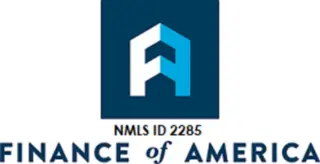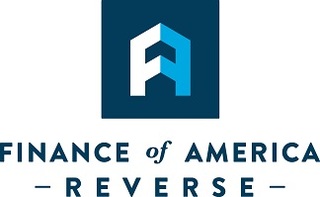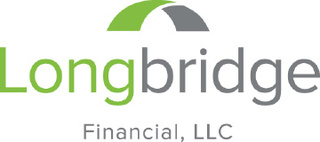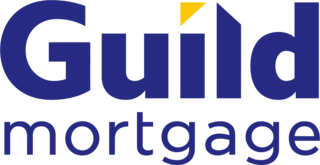6 Best Reverse Mortgage Companies of February 2026
* Company reviews and categories are based on information collected between March and April 2025. The sample rates currently featured are based on the most recent government data on reverse mortgages, issued in November 2025.
Reverse mortgages are one of the many tools you can use to access your home equity and turn it into cash — but not everyone can use them.
With reverse mortgages, only homeowners of a certain age are eligible. For the government-backed kind — called Home Equity Conversion Mortgages (HECMs) — you must be at least 62 to qualify. Other lenders offer proprietary options that allow seniors 55 and up to apply.
For those who are eligible, they can be helpful tools as you enter retirement, giving you access to much-needed cash at a time when your income might be limited. And the best part? They come with no monthly payments.
Are you considering a reverse mortgage? Here are the best lenders to choose from.
What to know about reverse mortgages
- Reverse mortgages allow you to turn your home equity into cash. You can receive the funds as a one-time payment, monthly payments, a line of credit or a combination of these options.
- Only seniors are eligible — those 62 and up for HECMs and 55 and up for proprietary programs.
- There are no monthly payments with reverse mortgages. You only repay the money once you sell the house, move out permanently or die.
- Major banks or credit unions don’t typically offer reverse mortgages, so you’ll need to shop around to ensure you get the best deal.
How we chose our top picks
Our editors and writers reviewed over 20 reverse mortgage lenders throughout the U.S., using government data, lender websites and lender representatives to confirm data accuracy. We then used factors such as product variety, interest rates, reputation, maximum loan amounts, age requirements and geographic availability to score each lender on a one-to-five scale. What you see below are the top companies that emerged.
Read our full methodology to learn more about our approach.
Our picks for the best reverse mortgage companies of February 2026
- Finance of America: Best Overall
- Northwest Reverse Mortgage: Best for Comparison Shopping
- Longbridge Financial: Best for Coverage Options
- South River Mortgage: Best for Refinancers
- Guild Mortgage: Best for Low Rates
- Fairway: Best for Homebuyers
Best reverse mortgage companies reviews
- 55 age minimum
- No notable regulatory actions or lawsuits
- Strong reviews and ratings
- Middle-of-the-road interest rates
- Not available in all 50 states
- Product types
- HECM, proprietary/jumbo reverse mortgage, second-lien credit line
- Maximum loan amount
- $4 million
- Minimum age
- 55
- Average HECM rate (November 2025)
- 5.78%
Why we chose it: Finance of America (NMLS #2285) scored the highest among all the reverse mortgage companies we considered, earning a 4.4 out of 5 rating. Its loan product variety, wide availability, strong ratings and variety of online resources and tools make it a good option for a large swath of potential borrowers. It also has a strong industry reputation and has no NMLS actions or notable lawsuits over the last five years.
- Wide variety of products
- 55 age minimum
- Strong reviews and ratings
- Only available in 28 states
- No rate data available
- Product types
- HECM, HECM for purchase, proprietary/jumbo reverse mortgage (four different kinds)
- Maximum loan amount
- $4 million
- Minimum age
- 55
- Average rates (November 2025)
- Not available
- Number of states served
- 28
Why we chose it: If you’re looking for choices, Northwest Reverse Mortgage (NMLS #347051) is the company to consider. The niche mortgage broker offers access to an expansive list of reverse mortgage options, including HECMs for purchase and four proprietary and jumbo reverse mortgage options, including some from Finance of America and Longbridge (other winners on our list). The only drawback is its limited geographic availability. Borrowers in just 28 states can use Northwest’s services.
- 55 age minimum
- Available in all 50 states
- Strong reviews and ratings
- Middle-of-the-road interest rates
- Product types
- HECM, HECM for purchase, proprietary/jumbo reverse mortgage
- Maximum loan amount
- $5 million
- Minimum age
- 55
- Average rates (November 2025)
- 5.71%
- Number of states served
- 50
Why we chose it: Regardless of where you live in the U.S., Longbridge Financial (NMLS # 957935) is a solid choice for reverse mortgage loans, lending to borrowers in all 50 states plus Washington, D.C. The lender recently announced a new proprietary reverse mortgage product called Platinum Preserve, which allows borrowers to reserve a portion of their home equity —10% to 40%—for the future while maintaining a fixed rate. The lender also recently introduced a home equity line of credit specifically designed for seniors, allowing qualified borrowers to access up to $400,000 in as little as five days. With strong reviews and ratings, Longbridge is a great option.
- Low interest rates
- Lots of experience in HECM refinances
- Strong reviews and ratings
- Not available in all 50 states
- Product types
- HECM, HECM for refinance, proprietary/jumbo reverse mortgage
- Maximum loan amount
- $4 million
- Minimum age
- 55
- Average rates (November 2025)
- 5.81%
- Number of states served
- 28
Why we chose it: If you already have a HECM and are considering refinancing to access more cash or get a better interest rate, South River Mortgage (NMLS #1854524) is worth a look. The lender has extensive experience with HECMs for refinancing, strong online ratings and no regulatory actions against it. South River ranked among the lowest average interest rates among the lenders we analyzed.
- Low interest rates
- Very strong reviews and ratings
- Wide product variety
- Not available in New York
- Product types
- HECM, HECM for purchase, HECM for refinance, proprietary/jumbo reverse mortgage
- Maximum loan amount
- $4 million
- Minimum age
- 62
- Average rates (November 2025)
- 5.85%
- Number of states served
- 49
Why we chose it: Among large, nationwide reverse mortgage lenders, Guild Mortgage (NMLS #3274) offered the lowest average HECM rates in our review. Guild is also highly accessible, serving 49 states, has no regulatory actions against it in recent history, and boasts strong customer ratings (4.97 out of 5 on Zillow on over 42,000 reviews)
- Wide product variety
- Available in all 50 states
- E-closings available
- BBB rating could be better
- Higher-than-average rates
- Recent customer data breach
- Product types
- HECM, HECM for purchase, second-lien HELOC, proprietary/jumbo reverse mortgage
- Maximum loan amount
- $4 million
- Minimum age
- 62
- Average rates (November 2025)
- 5.97%
- Number of states served
- 50
Why we chose it: Not all lenders offer HECMs you can use for home purchases, but Fairway (NMLS #2289) does. Combine that with its wide availability, deep library of online tools and resources, and its e-closing option, which lets you finalize your loan remotely, and you’ve got a lender that can help make your next home purchase much easier.
Other companies we considered
All Reverse Mortgage
All Reverse Mortgage (NMLS #13999) had the second-highest score among the lenders we considered. If you are in one of the places it serves, count yourself lucky: The lender offers low average HECM rates and the most robust set of online tools and resources around. Its squeaky-clean record and loads of high-scoring customer reviews are notable, too.
Why we didn't choose it: All Reverse Mortgage is only available in 13 states. Its limited geographic footprint held it back from being one of our top picks.
Atlantic Avenue Mortgage
Atlantic Avenue Mortgage (NMLS #2413563) also boasted ultra-low interest rates compared to other reverse mortgage lenders on our list. If you choose Atlantic, you could save quite a bit of money on interest.
Why we didn't choose it: You may find a low rate with Atlantic, but only if you live in one of the 27 states where the lender offers its product. Its limited availability kept it out of our top picks.
Mutual of Omaha
Mutual of Omaha (NMLS #1025894) is a well-known name in the reverse mortgage space and is one of the biggest originators by volume. Unfortunately, the lender faces several regulatory actions and lawsuits, and its website is less than helpful for newbie borrowers.
Why we didn't choose it: The lack of basic information on the lender's website makes it difficult to compare with other lenders' offers, which kept Mutual of Omaha from being considered as a top HECM provider.
What you need to know about reverse mortgage loans
Reverse mortgage loans function a little differently from other types of mortgage loans and home equity products. Before you apply for one, here’s what you should know.
What is a reverse mortgage?
A reverse mortgage is similar to a traditional mortgage, only it works in reverse: Instead of the borrower paying the lender, the lender pays the borrower a percentage of the available home equity.
Reverse mortgages are only available for senior homeowners, and they’re often used to help supplement Social Security or other limited forms of income in retirement.
According to Steve Irwin, president of the National Reverse Mortgage Lenders Association, reverse mortgages can help elderly homeowners to convert the increased value of their homes into cash "without having to sell and move or take on monthly principal and interest payments.”
Most people view reverse mortgages as a source of money for emergencies or big purchases, but it’s not the only reason homeowners are accessing this product. Reverse mortgages also “allow retirement accounts to rebound by using a stand-by reverse mortgage line of credit when markets are down,” Irwin says.
How does a reverse mortgage work?
Reverse mortgages work by letting you borrow from your home equity — or the stake in your home that you own outright.
The exact amount you can borrow depends on your age and the value of your home, and you can usually choose from several payout options:
- A credit line, which allows you to borrow money as needed over time (like a credit card)
- A lump sum payment, giving you your equity funds all at once
- Monthly payments, paying you a set amount each month
- Some combination of the above
For HECMs, you must be 62 or older, and with some lenders, you can get a proprietary reverse mortgage at age 55. Most lenders require you to have at least a 50% equity stake in your home to qualify — meaning your current mortgage loan balance is less than 50% of your home’s value. Additionally, you must attend a counseling session with an independent service to ensure you understand the pros and cons of reverse mortgages as part of the application process.
You must also stay up to date on your property taxes, home insurance and home maintenance during your reverse mortgage term. If you don't, the lender can foreclose on the property.
Types of reverse mortgages
There are several types of reverse mortgages. The most popular type is the Home Equity Conversion Mortgage (HECM), which is the government’s version of a reverse mortgage. It’s insured by the Federal Housing Administration and, depending on the lender, can sometimes be used to purchase another property.
There are also proprietary reverse mortgages, also known as jumbo loans, which are programs unique to private lenders. They may allow for younger borrowers, larger loan amounts or less equity. Many lenders that offer these options allow borrowers as young as 55 and loan amounts of up to $4 million.
Finally, there are single-purpose reverse mortgages. As the name suggests, these can only be used for a designated purpose, such as paying for home repairs. They’re typically offered by state and local governments.
How to choose a reverse mortgage lender
Choosing the right lender is essential when considering a reverse mortgage. For one, products and interest rates can vary widely by lender. But more than that, scams are common in the reverse mortgage industry, and if you’re not careful, you or a loved one could fall victim.
To ensure you choose the right lender, always consider:
- Reputation, including Better Business Bureau, Trustpilot and J.D. Power ratings and reviews
- Regulatory actions and lawsuits, paying special attention to any actions noted in the Nationwide Mortgage Licensing System
- Eligibility requirements, such as equity and age minimums
- Availability, as not all lenders serve borrowers in every state
- Loan products, especially if you are looking for a higher loan amount or a lower age minimum than HECMs allow for
If you’re not sure what reverse mortgage lender to use, consult a financial professional you trust before applying.
How is a reverse mortgage paid?
Reverse mortgages don’t come with monthly payments, as traditional mortgages do.
While they do accrue interest, no payment is due for that interest or the money you borrow until one of the following occurs:
- You sell your house
- You move away for six months or more (this includes moving to an assisted living facility or similar arrangement)
- You pass away
You can always repay all or a portion of a reverse mortgage before these circumstances arise, of course. A repayment would reduce the long-term interest you owe on your loan.
Can an heir keep a home with a reverse mortgage?
When a home is part of an inheritance, you may be concerned about whether or not your heir can to keep the family home once you’re gone. After all, you may have raised your children there, or it may hold other sentimental memories for you.
Fortunately, your heirs can redeem a house with a reverse mortgage. Unless they have enough cash on hand, they will generally need to take out a new loan to pay off the reverse mortgage. However, they can retain the property if they decide it’s worth the effort. For many seniors, this is a major sticking point when determining whether a reverse mortgage makes sense, but it shouldn't be a major concern as long as all family members are aware of their options.
“Borrowers should involve their family, financial planner, and other trusted advisors during the process of getting a reverse mortgage," Irwin says. "This way, everyone fully understands how a reverse mortgage can impact future inheritance and estate planning considerations."
Pros and cons of reverse mortgages
- No monthly paymets
- Allows you to age in place at home
- Several payout options
- Can supplement income in retirement
- Easy to qualify for
- May leave your heirs with unpaid debts
- Can come with high upfront fees
- Reduces the amount of equity you have in your home
- You must stay up to date on taxes, insurance and maintenance or the lender can foreclose
- Scams are common in the industry
Alternatives to reverse mortgages
A reverse mortgage isn’t the only option if you need money as you age.
You can also look at:
- Cash-out refinance: This involves replacing your current mortgage with a larger one and can provide you with a lump-sum cash payout. You’ll need to make monthly payments just as you would with your existing loan. Just be careful, as it replaces your rate and loan term, too, which may not be a good idea if interest rates have increased since you took out your original loan.
- Home equity loan: Another way to turn your equity into cash. This loan provides you with a lump-sum payment at closing, which you can use for any purpose. You’ll repay the money through fixed monthly payments over a period of five to 30 years.
- HELOC: A home equity line of credit (HELOC) is similar to a home equity loan, but it works more like a credit card, allowing you to withdraw funds as needed over a long period (usually 10 years).
- Home equity sharing agreement: Home equity sharing agreements allow you to sell a portion of your home’s future value to an investor in exchange for a lump sum payment, which you repay when the agreement ends or you sell the home. Like reverse mortgages, these require no monthly payments. Home equity sharing agreements do not accrue interest, although you will need to pay the difference for any appreciation gained during the agreement’s term.
You can also consider a credit card or personal loan for cash, although these typically come with higher interest rates than mortgage and home equity products.
Latest reverse mortgage news
Many older homeowners face a number of challenges, from increasing living costs to potential health issues that can drain their resources. The most challenging of all are the unplanned expenses that can derail even the most well-thought-out budget.
A recent study by the Center for Retirement Research at Boston College found that 83% of older households will face an unexpected expense at any given time. Sixty percent of these unanticipated expenses will be maintenance-related, such as home or car repairs, while 58% will be for unexpected healthcare costs. The typical retiree household spends 10% of its income on all unforeseen expenses each year — an amount that can make a big difference in a limited-income household.
Tapping into home equity can be a resource for many of the households facing unplanned outlays. Senior homeowners — those 62 or older — hold over $14 trillion in equity, a near record amount. A reverse mortgage is a resource older Americans can use to help cover these costs, with the advantage of a loan that doesn't need to be repaid monthly.
There are other options as well. Home equity loans and lines of credit allow homeowners to use the equity they've built up, and a cash-out refinance can also provide extra cash. All these options do require monthly payments; anyone considering them should take that into account when determining the best option.
FAQ
How do I pick a reverse mortgage lender?
Can you lose your home with a reverse mortgage?
Do I have to pay interest on a reverse mortgage?
Methodology
We evaluated nearly two dozen reverse mortgage lenders nationwide. The data used to determine our top picks was gathered between March and April 2025, and included a comparison of product terms, qualifying requirements, interest rates, availability and reputation among other factors. Lenders were rated on a one-to-five scale based on eight categories: product variety (10%), maximum loan amount (10%), age minimum (10%), online resources (10%), average rates (15%), states served (15%), lawsuits/regulatory actions (15%) and ratings/reviews (15%).
We prioritized companies that:
- Had no lawsuits and no regulatory actions listed in the Nationwide Mortgage Licensing System in the last five years
- Offered low average interest rates on HECMs (as measured from government data on reverse mortgages issued in February 2025)
- Boast high ratings on Better Business Bureau, Zillow, Google and Trustpilot
- Have low age minimums and wide geographic availability, allowing more borrowers access to their products
- Offer several reverse mortgage products, including HECMs, jumbo products and proprietary loans
Summary of the 6 best reverse mortgage companies of February 2026
- Finance of America: Best Overall
- Northwest Reverse Mortgage: Best for Comparison Shopping
- Longbridge Financial: Best for Coverage Options
- South River Mortgage: Best for Refinancers
- Guild Mortgage: Best for Low Rates
- Fairway: Best for Homebuyers










